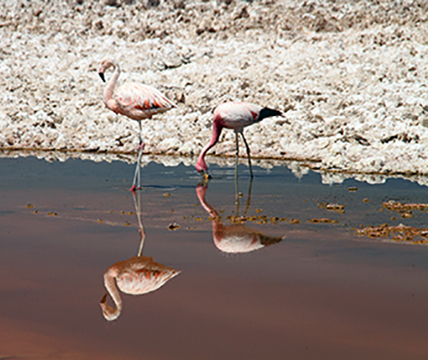Scientific and technological innovations offer the potential to have a major impact on society and improving health, protecting the environment, building economies and enhancing the quality of life for users on a global scale.
Yet the majority of these innovations never make it beyond the confines of the laboratory or the research institution – bridging the gap between the initial concept and a product or service that meets market needs is often a step too far.
While much of Cambridge Enterprise’s International Outreach Programme work is focused on helping overseas institutions to build the initial product proposition and commercial strategy, it also delivers programmes to help those institutions to bridge the gap.
In 2015 Cambridge Enterprise supported Chile’s innovation agency, CORFO, in the delivery of their Go to Market Programme for early stage businesses. These businesses were based on innovative science and technology developed at leading universities and research institutions in Chile which were either already in the market and looking to expand into global markets, or were close to achieving market access through early prototype trials or licensing discussions.
A defining feature of the programme was the focus on refinement and practical implementation of outline commercialisation strategies developed by the teams involved. While the basic business proposition was understood there was still a need to:
- Sharpen the understanding of customer needs and segmentation
- Refine the team’s understanding and communication of the Unique Sales Propositions (USPs) of the technologies
- Build awareness of the competitive landscape
- Enhance the team’s understanding of the optimum route to market and the value chain for their chosen industry segment
The incubation and acceleration process for the teams was vital to provide real world, practitioner-led support and guidance. Cambridge Enterprise tapped into its extensive network of business mentors and commercial contacts to provide input from those with specific experience of the technologies and markets relevant to each team and was thus able to make a tangible impact on the potential for success of the businesses involved.
Shortlisted teams continued training with an intensive period of mentoring in Cambridge. The teams were based at the ideaSpace incubator and were therefore able to experience first-hand the supportive nature of the Cambridge ecosystem. They were also able to benefit from the contacts and experience of seasoned entrepreneurs and business people, leading to new business opportunities and helping to further refine their understanding of the value chain for their technologies.
MAP Chile was one of the successful shortlisted teams. They were supported by a serial entrepreneur with extensive experience of the food technology sector, providing critical introductions to major industry players and experts in the field. Having developed an advanced method for the production of protein from fish waste, MAP needed to understand more about the structure of the health supplements business and the food additives sector. Working with Cambridge Enterprise they were able to sharpen their business proposition and understanding of the competitive environment, which enabled MAP to enhance their Go to Market strategy.
Tags: Chilie, CORFO, ideaspace, International Outreach Programme, IOP




